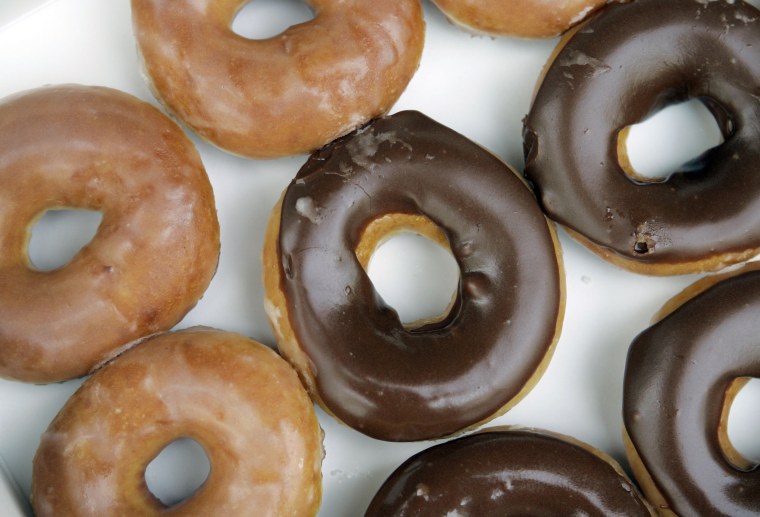Doughnuts possess superpowers. They tempt you from the break room. Even though you ate breakfast, their sweet, buttery smell envelops you, urging you to take a nibble. You plan to split a glazed with your cubemate, but before you can say "Krispy Kreme," you've devoured an entire cruller and returned to your desk feeling guilty and stuffed. But baked goods don't deserve all the blame for derailing your diet. They have a partner in crime: your brain.
That's right. Your brain, not your stomach, is what makes you desire sugary, fatty splurges such as brownies and french fries. And recently, the mind-craving connection has become a hot topic among researchers, resulting in new insights into how to resist treats and stay slim.
The main cravings culprit is a system of interconnected neurons called the reward pathway that evolved over millions of years to encourage prehistoric you to do things that kept you alive, like eating. High-calorie food was scarce and crucial for survival, so your brain learned to flood itself with feel-good chemicals such as dopamine and serotonin in response to tastes, smells and even people or places it linked with rich grub.
This effect pushed you to eat when such bounty was available. Water, veggies and other plant food were easy for your cavewoman self to locate, which is why today you're less inclined to pig out on produce, says Nora Volkow, M.D., an addiction researcher and director of the National Institute on Drug Abuse in Bethesda, Maryland. The system worked well until modern times, when high-fat, high-calorie eats became available 24/7.
A better measure of what to consume and when: true hunger, your body's biological request for nourishment, which comes straight from the belly. When you need energy, your stomach dispatches ghrelin, the hunger hormone, to the hypothalamus, your brain's command center for metabolism. As a result, you look for food. Then, when you're full, your fat cells release leptin, which signals that it's time to drop your fork.
But as any chocoholic knows, a desire for dessert can get you to take a bite and keep eating however full you might be, especially if you're stressed or tired. The key to overcoming thousands of years of evolutionary biology and finally kicking your sweet tooth to the curb? Tweaking your habits to outsmart the system that sends you in search of junk. We promise — there's kryptonite for those doughnuts yet.
